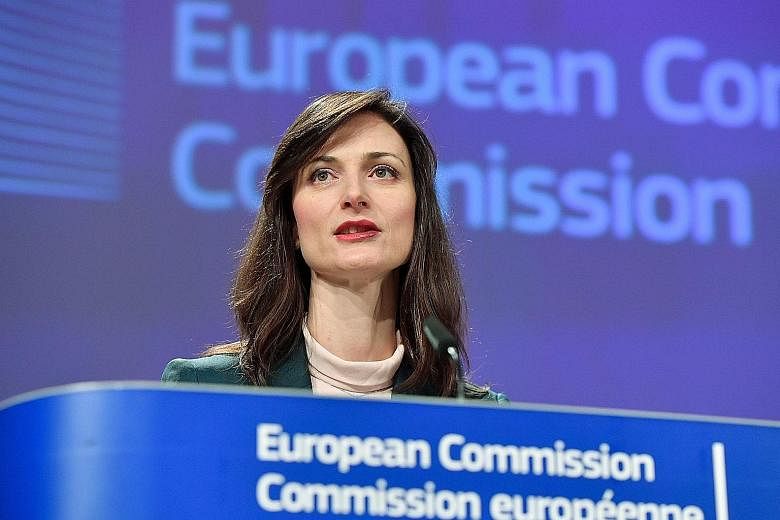BRUSSELS • Will Russian trolls, American social media giants and opportunistic fake news merchants combine to poison Europe's political landscape ahead of next month's continent-wide election?
Brussels fears that online disinformation will fuel the populist wave that officials believe skewed the Brexit referendum and carried Mr Donald Trump all the way to the White House.
European Council President Donald Tusk warned recently: "There are external anti-European forces, which are seeking - openly or secretly - to influence the democratic choices of Europeans."
This was, he claimed, also "the case with Brexit and a number of election campaigns across Europe".
Between May 23 and 26, European voters will go to the polls to choose around 700 Members in the European Parliament to sit in the Strasbourg European Union Parliament and oversee continent-wide legislation.
In the final weeks of the campaign, officials are on alert, fearing that opponents - including Moscow - will attempt to spread fake news, amplified by viral social media.
This could in turn boost support for various populist insurgent parties, deepen existing divisions in the electorate and undermine faith in democracy or EU institutions.
Some go as far as to call the phenomenon a state-led attack.
European Commission vice-president and former Estonian premier Andrus Ansip said: "There is strong evidence pointing to Russia as a primary source of disinformation in Europe."
Public trust in national and EU institutions and in the so-called mainstream media is already low, and Web users seeking cash from advertising clicks have found a market for fake news.
Add to this state-led covert propaganda and the viral effect of US-based media platforms like Facebook, Twitter and Google's YouTube and you have a recipe for disruption.
EU commissioner for the digital economy Mariya Gabriel brands this an "invisible scourge" that "intrudes into the lives of our citizens and influences our opinions and decision-making".
In response to the perceived threat, the European Commission has drawn up guidelines for member states, calling on them to support quality journalism or to work with independent fact checkers. Last month, it also set up an "early warning system" so capitals can share information on "coordinated attempts by foreign actors to manipulate" the democratic debate in real time.
And last year, a code of practice was signed by online platforms to fight disinformation based on objectives set out by the commission.
The European External Action Service (EEAS), the commission's foreign affairs arm, has a team of around 15 to detect and analyse misinformation campaigns targeting the EU. Its website, "EU vs disinformation", claims credit for refuting more than 5,000 items of fake news, mainly related to Russia.
But the unit's resources remain modest. And, as Mr Paul Butcher of think-tank European Policy Centre observed, involving state intelligence services or ministries like the EEAS in the campaign can be counterproductive. Better than state-led counter-propaganda, he said, "structural resistance to disinformation can be built up through the efforts of civil society, non-governmental organisations and the private sector".
AGENCE FRANCE-PRESSE

